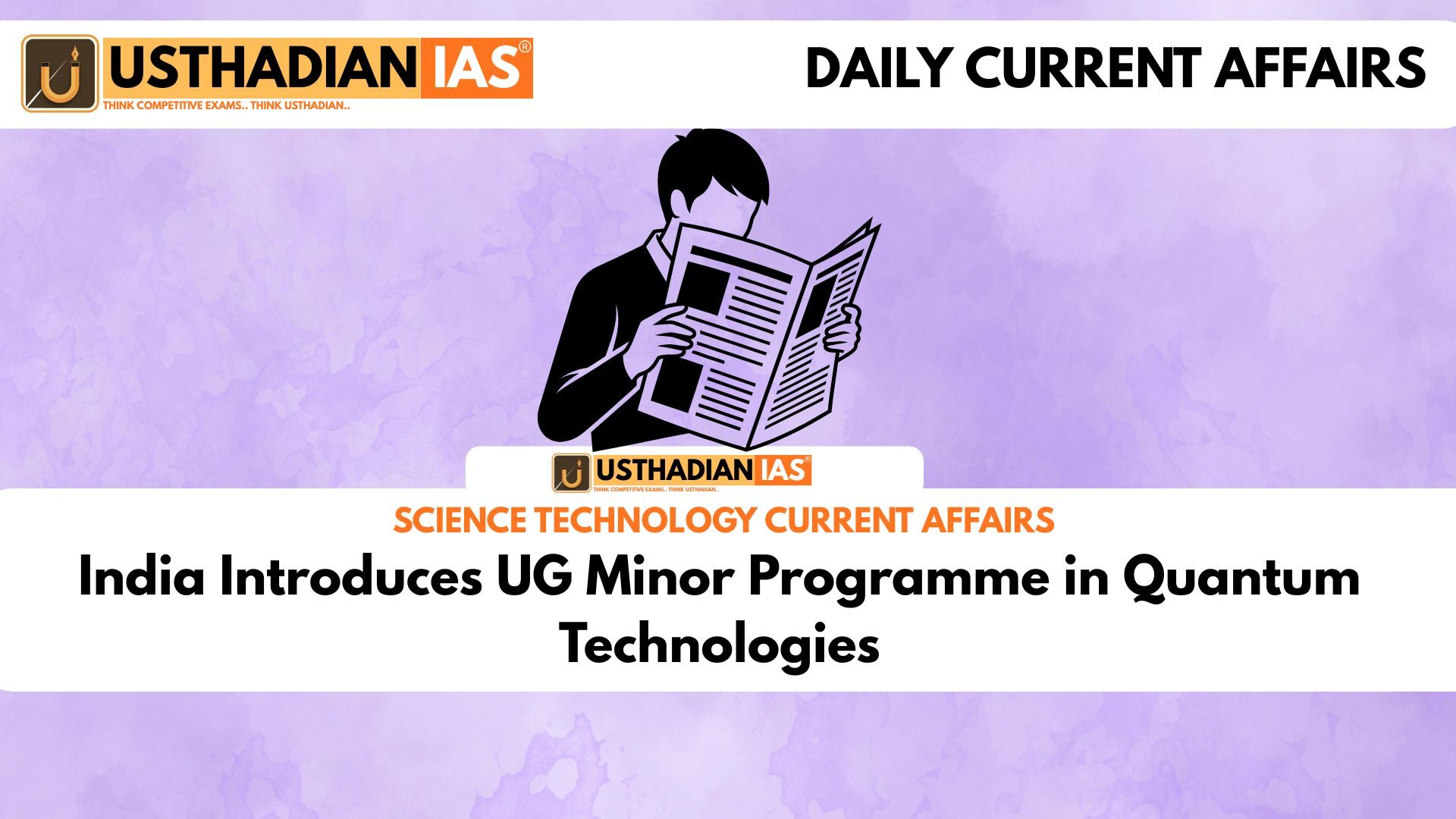New beginnings in quantum education
India Introduces UG Minor Programme in Quantum Technologies: India has taken a major step in tech education by launching its first-ever UG Minor Programme in Quantum Technologies. This initiative is a joint effort by AICTE and the National Quantum Mission (NQM). Starting from the next academic year, engineering students from their third semester onwards will be eligible to take up this course. The move reflects India’s growing focus on building a skilled workforce in quantum computing, cryptography, and advanced technologies.
What students will learn?
The course is designed to introduce core concepts like quantum mechanics, quantum computing, quantum cryptography, and quantum algorithms. These areas are crucial in today’s tech landscape, especially for fields like cybersecurity and artificial intelligence. Students opting for this minor will gain a solid foundation in how the quantum world works and how it can be used to solve modern-day challenges.
Flexible and modern curriculum
One of the highlights of this programme is its flexibility. Students can choose 18 credits from a wide pool of over 30 specialized courses. The curriculum includes topics like Quantum Computation, Quantum Communication, Quantum Sensing, and Quantum Materials. These courses have been carefully developed in collaboration with institutions such as the IITs, IIITs, and NITs, ensuring global relevance and industry alignment.
Practical learning gets a push
The programme goes beyond theory. A major focus is on hands-on learning through quantum simulators, software, and lab-based activities. Students will get to work on real-world projects and gain practical skills that are in high demand. This approach will not only strengthen their conceptual knowledge but also prepare them for roles in cutting-edge industries.
Faculty training and infrastructure boost
To ensure smooth delivery, AICTE has also introduced Faculty Development Programmes (FDPs). These programmes will train educators to teach quantum subjects effectively. In addition, new quantum laboratories will be developed across partner institutes, giving students access to state-of-the-art research and practical facilities. This infrastructure will be essential in shaping a strong quantum education ecosystem.
Strengthening India’s global position
The launch of this UG Minor aligns with the broader goals of the National Quantum Mission 2025, which aims to make India a leader in quantum technology. With better academic-industry collaboration, the course is expected to improve employability, drive innovation, and support national research goals. India is now positioning itself alongside global leaders in this fast-growing tech frontier.
Static Usthadian Current Affairs Table
India Introduces UG Minor Programme in Quantum Technologies:
| Key Point | Details |
| Programme Launch | India’s first UG Minor in Quantum Technologies |
| Organising Bodies | AICTE and National Quantum Mission (NQM) |
| Eligible Students | Engineering students from 3rd semester onwards |
| Number of Courses Offered | Over 30 |
| Credit Requirement | 18 credits |
| Collaborating Institutes | IITs, IIITs, NITs |
| Core Subjects | Quantum mechanics, computing, cryptography, algorithms |
| Learning Method | Hands-on with simulators, labs, and projects |
| Faculty Training | Through Faculty Development Programmes (FDPs) by AICTE |
| National Objective | Build skilled quantum workforce under National Quantum Mission 2025 |








